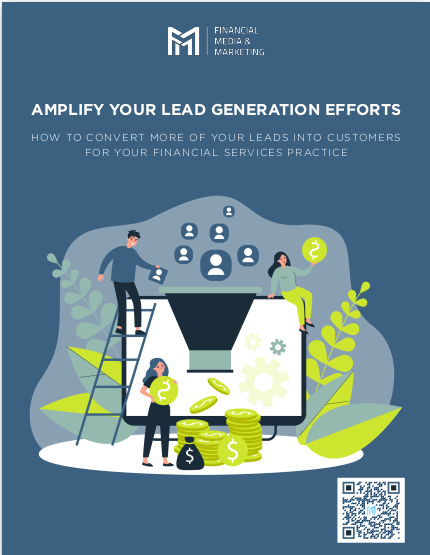Email Marketing for Insurance Agents: Nurturing Leads and Client Relationships
Key Takeaways:
- Email marketing allows personalized communication and education, fostering trust with leads and nurturing them into loyal clients. Segment your email list, provide valuable content, and maintain a consistent schedule for optimal engagement.
- Personalize your emails, optimize for mobile viewing, and track results through A/B testing to ensure your email marketing efforts resonate with your audience and achieve your desired outcomes. Utilize email marketing to nurture leads, strengthen client relationships, and achieve long-term success in the competitive insurance industry.
In the realm of insurance, building and maintaining strong client relationships is paramount to success. Email marketing has emerged as a powerful tool for insurance agents to nurture leads, communicate with clients, and provide valuable insights. In this article, we’ll explore the significance of email marketing in the insurance industry and offer practical strategies on how insurance agents can leverage it to nurture leads and enhance client relationships.
The Role of Email Marketing in Insurance
1. Personalized Communication
Email marketing allows insurance agents to send personalized messages directly to clients and prospects. Personalization helps in building stronger connections and trust.
2. Nurturing Leads
Email campaigns enable agents to nurture leads over time. As potential clients consider their insurance options, regular communication through email can keep your services top-of-mind.
3. Educating Clients
Insurance can be complex, and clients often have questions. Email marketing provides an avenue to educate clients about policy details, coverage options, and industry trends.
Strategies for Effective Email Marketing
1. Build a Quality Email List
Client Segmentation
Segment your email list based on client profiles and needs. Tailor your email content to address the specific interests of each group.
Opt-In Subscriptions
Encourage clients and website visitors to subscribe to your emails voluntarily. Make it easy for them to opt in through your website, social media, and in-person interactions.
2. Create Valuable Content
Educational Content
Provide informative content that helps clients make informed insurance decisions. Share articles, guides, and tips relevant to their insurance needs.
Industry Updates
Keep clients informed about changes in the insurance industry, regulatory updates, and market trends. Offering valuable insights positions you as a trusted advisor.
3. Establish a Consistent Schedule
Maintain a regular email schedule to keep your audience engaged. Whether it’s a monthly newsletter or weekly tips, consistency is key to nurturing relationships.
4. Personalize Your Emails
Personal Greetings
Address recipients by their first name to create a personalized connection from the start.
Tailored Recommendations
Recommend insurance products or coverage options based on each client’s unique situation. Personalized recommendations demonstrate your commitment to their specific needs.
5. Use Engaging Subject Lines
Craft compelling subject lines that grab the reader’s attention and entice them to open your emails. Avoid generic or spammy subject lines.
6. Include Clear Calls to Action (CTAs)
Every email should have a clear and relevant CTA. Whether it’s inviting clients to schedule a consultation, request a quote, or learn more about a specific topic, make the next steps clear.
7. Mobile Optimization
Ensure that your emails are mobile-responsive. Many clients access their emails on mobile devices, so your content should be easy to read and navigate on smartphones and tablets.
8. A/B Testing
Regularly test different elements of your emails, such as subject lines, content, and CTAs, to determine what resonates best with your audience.
Nurturing Leads through Email
1. Welcome Series
Create a series of welcome emails for new subscribers or leads. These emails should introduce your agency, provide valuable information, and encourage further engagement.
2. Drip Campaigns
Develop drip email campaigns that gradually nurture leads. Share educational content, success stories, and reasons to choose your agency. Gradually transition leads into clients.
3. Respond Promptly
When leads reach out via email, respond promptly and professionally. Timely responses demonstrate your commitment to their needs.
Enhancing Client Relationships through Email
1. Ongoing Communication
Stay in touch with existing clients through regular email communication. Share policy updates, important reminders, and tips for managing their insurance effectively.
2. Annual Reviews
Schedule annual insurance reviews with clients. Use email to send reminders and encourage them to assess their coverage needs regularly.
3. Solicit Feedback
Request feedback from clients via email surveys or feedback forms. Act on their suggestions to improve your services and demonstrate that you value their input.
4. Celebrate Milestones
Acknowledge important milestones, such as policy anniversaries or birthdays, with personalized emails. Small gestures can strengthen client loyalty.
Compliance and Ethical Considerations
1. Compliance with Regulations
Ensure that your email marketing efforts comply with industry regulations and data protection laws, such as GDPR or HIPAA, where applicable.
2. Respect Privacy
Always respect client privacy and obtain consent before sending marketing emails. Provide an easy way for clients to opt out of your emails.
3. Data Security
Take measures to safeguard client data and email communication to protect against data breaches or unauthorized access.
Conclusion
Email marketing is a valuable tool that can help insurance agents nurture leads and enhance client relationships. By providing valuable content, personalizing your communication, and maintaining a consistent schedule, you can position yourself as a trusted insurance advisor. Remember that email marketing is a long-term strategy that requires dedication and ongoing effort, but the rewards in terms of client retention and business growth can be significant in the competitive world of insurance.










